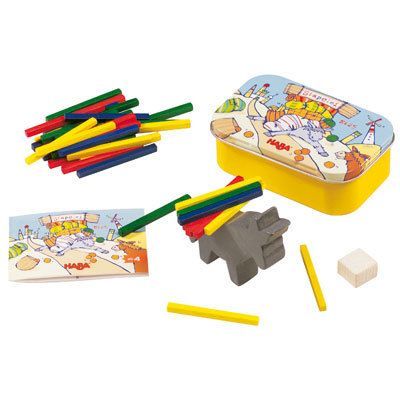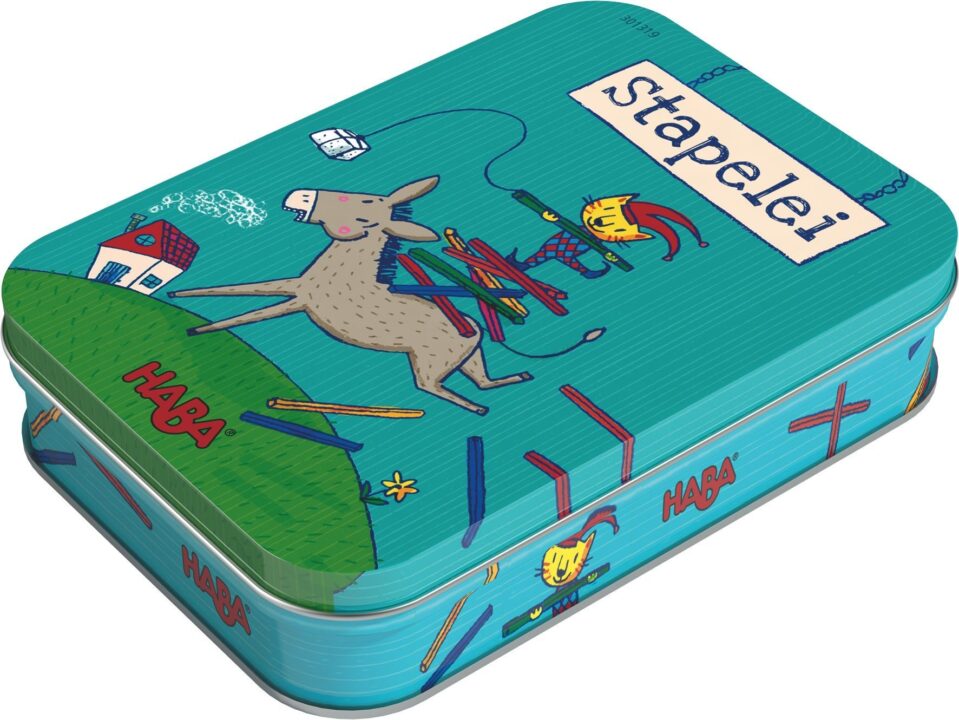Welcome to my review! If you like your family game nights to include suspense, stacking, and maybe the occasional toppled tower, then you’ve probably wondered if this box of color and chaos belongs on your shelf. Don’t worry—I’ve risked my dignity (and my friendship with Steve, who takes every move personally) to bring you the real scoop on this game. Does it deliver clever fun, or just a balancing act of luck? Let’s find out, brick by brick.
How It Plays
Setting up
First, open the Stack box and stare in awe at the glorious pile of colorful tiles. Everyone grabs their own set—don’t argue about colors; it’s just a game, Bob. Place the starting tile in the middle. Shuffle the rest and keep them handy.
Gameplay
On your turn, pick a tile from your stash and add it to your stack. The catch? Your tiles must be balanced, and you can’t just plop them anywhere. Some tiles have weird shapes—good luck! Players take turns stacking, hoping nothing topples. If your stack falls, prepare for laughs and mild shame.
Winning the game
The first person to stack all their tiles wins. If everyone ends up with a wobbly mess, the person with the tallest standing stack is the champion. It’s simple, but trust me, your heart rate will spike once you get down to the last few tiles.
Want to know more? Read our extensive strategy guide for Stack.
Getting to Grips with Stack: Rules and Learning Curve
If you ever tried teaching your nan a new game and got that look of pure confusion, you’ll know how much game rules matter. Stack is a game that’s easy on your brain cells, but still gives you that sweet feeling of being a strategic genius. The rules—good news—fit on a single sheet of paper. No mountain of instruction books or fifteen step setup. You can actually open the box and start playing before your pizza gets cold. That’s a win in my book.
In Stack, each player takes turns placing blocks, trying to build the tallest and most stable tower. There are a couple of twists, like special blocks that do sneaky things, but you won’t need a PhD to figure them out. I managed to teach the rules to my friends in less than five minutes. No one fell asleep and no one rage quit. That’s rare. Still, Stack isn’t just a kid’s game. Once you know the basics, you’ll realize there’s a lot of sneaky moves and strategic planning you can pull off. The learning curve sits somewhere between ‘I got this’ and ‘Wait, what if I do… THIS?’
One tiny shortcoming: the rules could use a few more examples, especially for the oddball block types. We had a brief debate over whether the ‘Multiplier’ block counted for the whole tower or just a layer. The FAQ online cleared it up, but I’d rather keep my phone away when I’m in full board game mode. Aside from that, Stack gets you playing fast, and mistakes are rare.
Now that you know how to play, buckle up—next we’ll see how much this game might ruin (or spice up) your friendships with its player interaction and competitiveness!

How Much Do You Yell at Each Other? Stack’s Player Interaction & Competitiveness
Let’s talk about the real reason we play board games: bickering with friends and family. “Stack” manages to stir up just the right amount of competition without descending into pure chaos. The game truly shines when you realize every piece you place could knock over someone else’s carefully built dreams (or stacks, in this case). There are moments of silent plotting and loud groans when the table wobbles. I’ve seen more than one cousin give the stink-eye after their tower came tumbling down because of another player’s risky move.
Stack keeps you on your toes, because you’re never quite sure if someone’s going to play it safe or live dangerously. There’s a real push-your-luck vibe at the table, and the tension ramps up as the game goes on and the stacks get taller. There’s nothing more satisfying than pulling off a risky move and watching your entire group gasp like they’ve witnessed a magic trick. Of course, it’s even better when you cause a disaster for someone else—sorry, Uncle Dave, but everyone saw it coming.
Competitiveness in Stack is pretty balanced. No one can run away with a win too fast, and you always have a shot at a comeback if you keep your cool (and have steady hands). There’s not much downtime, either, so you’re always engaged. Some players do try to talk their rivals into making terrible choices, and let me tell you, the mind games are half the fun!
But is Stack really a game of skill, or does luck sneak in with every wobbly pile? Brace yourself—next up, I’ll spill all the beans on luck versus skill, because things are about to get wobbly!
Luck vs Skill: Who’s Really Winning at Stack?
If you’ve ever thrown your hands up shouting, “That’s not fair!” at a board game, you’re not alone. Stack, thankfully, doesn’t really give you that excuse. This game leans into skill much more than luck. Sure, there’s a pinch of the unknown, because you never know exactly what piece your opponent will pull next, but most of the game rests on your choices. I played Stack with my pals last Friday, and believe me, there were no wild dice rolls to blame. You live and die by your own slippery fingers and strategic misjudgments.
Stack rewards careful planning. Success comes from how you balance the stack, not random card draws or roulette wheel spins. I found myself plotting moves like some sort of off-brand chess grandmaster, except with more wobbly blocks and less dignity. My friend Mark, who usually blames his losses on cosmic misfortune, could only blame himself this time. It was glorious.
That said, Stack does have a sneaky side. If you’re the last to move before the tower collapses, well, tough luck. But that’s more your poor choices than true blind chance. If you win, you earned it. And if you topple the tower, you’ll only have yourself (and maybe your sweaty hands) to blame.
Bottom line: Stack is refreshingly free of unfair luck swings, which means your victories are earned, not gifted by fate. If you want a game that levels the playing field (but not the pile of blocks), Stack delivers.
Stick around, because next we’ll see if Stack stays fun after your tenth play or if it’s about as replayable as yesterday’s pizza crust.
Replay Value and Overall Fun in Stack
Now, let’s talk about how many times you’ll actually want to pull Stack off the shelf before it becomes a fancy coaster. I’ve played Stack with my regular crew (the ones who aren’t banned for flipping tables). Every single game, the vibe was lively. There’s this itch to try new techniques each round. One time, I tried to play it “defensively,” which is code for blocking my mate Dave’s tower just because he was too smug. The game lets you mess with your own plans and—more importantly—your friends’ egos. That keeps it fresh.
Stack doesn’t fall into that trap where after two rounds, you know every trick in the box. We found ourselves giggling and plotting revenge in the next game—”Next round, you’re going down, Sarah!” Plus, it’s got quick setup and short rounds, so it’s never a burden to reset. You’ll start thinking, “One more game,” until you’ve played five and are very late for dinner.
The best part: Stack fits a wide group. Newbies, kids, and seasoned gamers all stayed engaged, which is rare. No one was yawning or secretly scrolling their phones under the table. So, Stack earns a gold star on the fun-o-meter, especially for families and party groups.
Do I recommend Stack? Absolutely. Unless you only like games that take three hours and require a flowchart to score. If you want laughs, a little rivalry, and a solid reason to shout “Stack attack!” at your friends, this one deserves a spot in your collection.
Conclusion
If you want a game that’s easy to learn and packs a punch every time you play, Stack will fit your table nicely. It’s interactive, rewards smart moves, and you won’t have to blame the dice when Aunt Marge beats you again (unless she’s secretly a board game mastermind). Sure, the rulebook could be smoother, but you can figure it out faster than finding a matching sock in the laundry. Stack is good for families, friends, and anyone who likes to stack things—without the risk of a real-life mess. That wraps up my review. Now excuse me, I have to defend my Stack championship crown. Good luck, you’ll need it!


